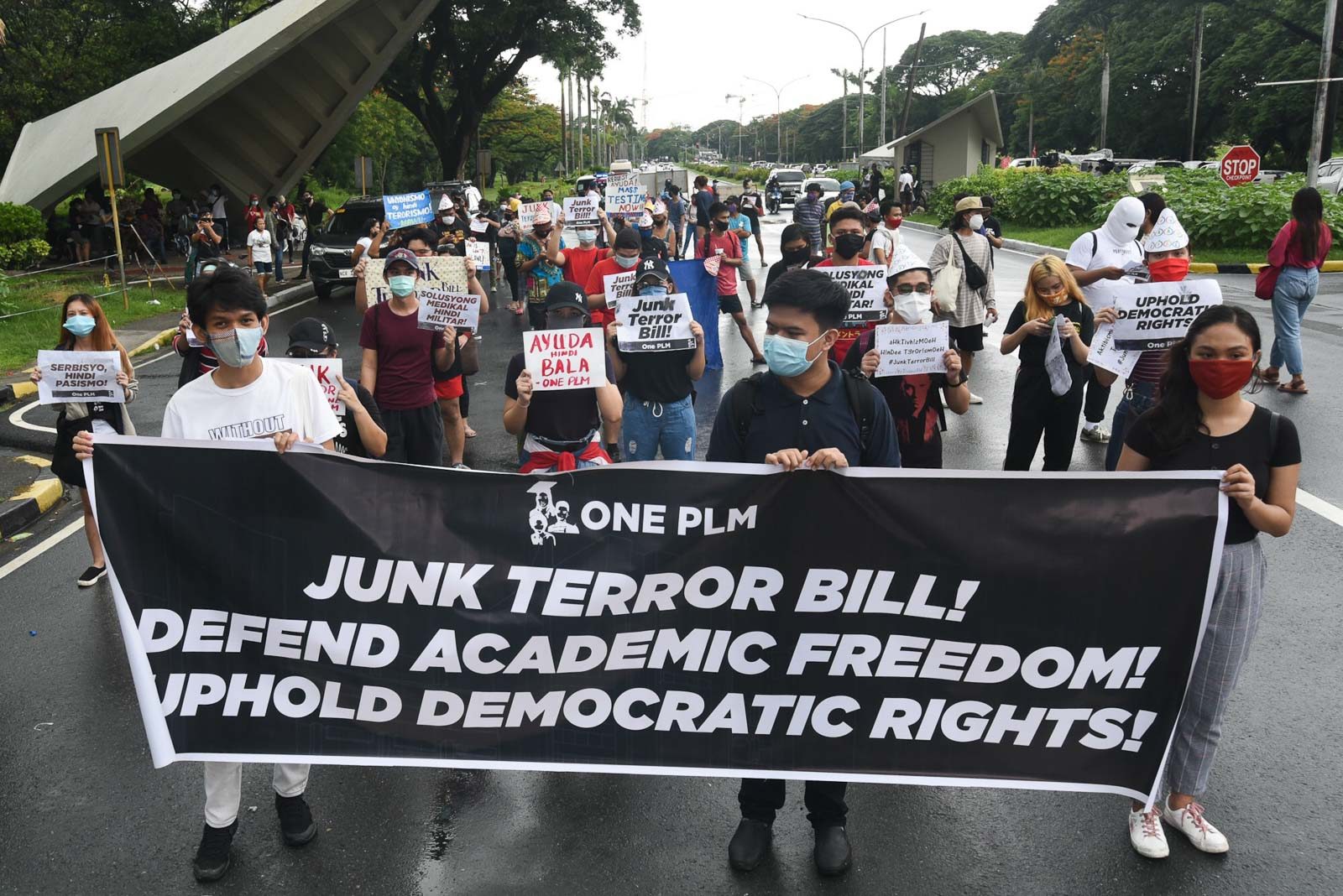SUMMARY
This is AI generated summarization, which may have errors. For context, always refer to the full article.

MANILA, Philippines – United Nations (UN) High Commissioner for Human Rights Michelle Bachelet on Tuesday, June 30, urged President Rodrigo Duterte not to sign the 2020 anti-terror bill into law and instead draft legislation that has enough safeguards against abuses.
In a statement delivered before the 44th session of the Human Rights Council (HRC), Bachelet said the passage of the bill from Congress “heightens our concerns about the blurring of important distinctions between criticism, criminality and terrorism.”
“So I would urge the President to refrain from signing the law, and to initiate a broad-based consultation process to draft legislation that can effectively prevent and counter violent extremism – but which contains some safeguards to prevent its misuse against people engaged in peaceful criticism and advocacy,” she said, adding that her office is ready to assist.
On June 16, Presidential Spokesperson Harry Roque says Duterte is inclined to sign the bill despite heavy criticism and opposition from the public. Human rights and lawyers groups all expressed concern on the provisions of the proposed law. (EXPLAINER: Comparing dangers in old law and anti-terror bill)
The possible enacment of the law in the climate of fear and impunity in the Philippines is dangerous. Duterte and his administration are so far consistent in threatening human rights activists, lawyers, and journalists, among others. (READ: Duterte’s war on dissent)
“Human rights defenders are routinely smeared as terrorists, enemies of the State and even viruses akin to COVID-19,” she said. “The law could have a further chilling effect on human rights and humanitarian work, hindering support to vulnerable and marginalized communities.”
The UN rights office’s report on the Philippine situation found that more than 248 human rights defenders, lawyers, journalists, and trade unionists were killed between 2015 and 2019.
If Duterte neither signs or vetoes it, will lapse into law by July 9.
The UN rights office previously expressed concern over the bill, fearing that it could lead to further crack down on Filipino’s basic rights.
The report, released on June 4, cited the bill among “worrying” laws which “risk eroding constitutional and other legal protections.” – Rappler.com
Add a comment
How does this make you feel?
There are no comments yet. Add your comment to start the conversation.